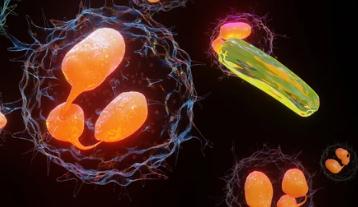
Lysosome biogenesis, the process of generating new lysosomes, is critical to ensuring that sufficient lysosomes are available to support cellular metabolism while generating new building blocks for anabolism. CD BioSciences' expertise in lysosomes provides strong support for the analysis services for lysosome biogenesis. Our advanced technology platform will provide you with efficient, cost-effective services to ensure 100% satisfaction.
Introduction of Lysosome Biogenesis
Intracellular transport of lysosomal membrane proteins and soluble hydrolases is fundamental to lysosome biogenesis and requires multiple pathways to transport newly synthesized lysosomal proteins for direct or indirect delivery to the nuclear endosome. Evidence to date suggests that lysosome production results from the re-formation or budding of endolysosomes/autophagosomes formed by the fusion of pre-existing lysosomes and late lysosomes/autophagosomes. Although basal lysosome biosynthesis occurs at a slower rate under steady-state conditions, the induction of this process is facilitated under nutritional deficiencies or lysosomal storage disorders (LSD). For example, under pathological conditions of LSD, more new lysosomes are required for regulation due to the accumulation of dysfunctional and store-filled lysosomes. Regulation of lysosome biogenesis occurs at the transcriptional and translational levels. The existence of transcriptional regulation of lysosome biogenesis was demonstrated by the identification of TFEB as a major regulator of several genes encoding lysosomal membrane proteins and hydrolases.
 Fig. 1. Delivery to lysosomes. (Luzio J P, et al., 2014)
Fig. 1. Delivery to lysosomes. (Luzio J P, et al., 2014)
Our Lysosome Biogenesis Analysis Services
The advent of new microscopy techniques for tracking lysosomal biogenesis in real time and the ability to interfere with individual proteins has brought new insights into this field. CD BioSciences is committed to providing a more comprehensive analysis of lysosomal biogenesis and secretion. An increase in the number of lysosomes is one of the main indicators of lysosomal biogenesis. Furthermore, an increase in lysosome number and volume should be accompanied by an increase in lysosomal activity. For this reason, our engineers developed the following strategies to analyze the lysosomal biogenesis process.
- We assess lysosome number by measuring lysosomal compartment size using protein blotting (WB) or immunofluorescence with anti-LAMP1 antibodies.
- We assess the number of lysosomes by measuring lysosomal compartment size through analysis of LysoTracker fluorescence intensity.
- Given the key role of TFEB in regulating lysosomal biogenesis, we determined whether the lysosomal biosynthetic pathway is active by analyzing TFEB activity.
- We successfully established a cellular model of LSD to analyze the process of lysosome biosynthesis formation induced by stimulation.
The mTOR complex 1 (mTORC1)-TFEB signaling axis is the main hub that allows cells to adjust lysosome number, activity and function according to cellular nutritional status. Our imaging technology platform also provides strong support for the analysis of lysosomal cytosolic action. Here, the analysis services for lysosomal biogenesis we can provide include, but are not limited to:
Features of Our Services
- To provide theoretical support for the study of coordinated lysosomes between different functions.
- Advanced technology platforms to observe the steps and processes involved in the maturation of endolysosomes into lysosomes.
- Identifying the many important proteins required for lysosomal secretion.
- Our ability to improve the study of lysosomes has gradually increased.
- Performing complementary analyses of lysosomal activity.
Our analysis services for lysosome biogenesis are widely suitable for high-throughput screening of lysosomal biogenesis in cells. Our highly skilled and dedicated scientific staff ensures that the most appropriate method and technology is selected for each specialized lysosomal project. If you have any special requirements about our services, please feel free to contact us. We are looking forward to working together with your attractive projects.
Reference
- Luzio J P, Hackmann Y, Dieckmann N M G, et al. (2014) The biogenesis of lysosomes and lysosome-related organelles[J]. Cold Spring Harbor perspectives in biology. 6(9): a016840.

